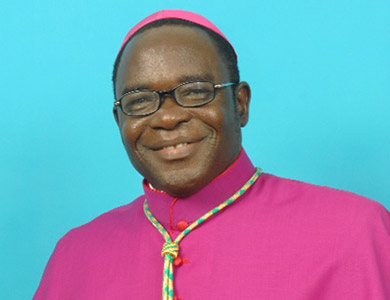By Joshua Chibuzo Andrew, Owerri
The Catholic Bishop of Sokoto Diocese, Matthew Kukah, has said on Sunday that Nigerians were frustrated by the outcome of the 2023 election.
He tasked citizens to rise and reclaim their country from the clutches of the current administration, adding that justice had eluded Nigerians.
Kukah, who stated this in his Easter message to Nigerians, described them as men and women returning from a funeral with forlorn looks.
He, however, commended President Muhammadu Buhari for the fact that he had recognised that his criticisms of the current administration were not borne out of malice, but rather a desire to see Nigeria reach its full potential.
According to him, “I commend you (Buhari) for the fact that you have known that none of this was done out of malice but that we want the best for our country.
“May God guide you in retirement while we all embark on the challenge of reclaiming the country we knew before you came,” Kukah said.
The cleric condemned the violence that trailed the elections, saying it could not be accepted as the new ladder to power.
Kukah said: “Nigerians are so collectively frustrated that it is almost impossible to convince them that they can find justice.
“Everywhere you turn today, Nigerians look forlorn, disconsolate, lugubrious, and despondent. Our swagger is gone. We look like men and women returning from a funeral, murmuring discontentment in hushed tones. It is, therefore, not surprising that even the victors are blowing a muted trumpet.
“Unpleasant as this may sound, this blood that they have shed could be seen as blood of the birth of a new Nigeria. It can become the blood of our new birth, our redemption.
”However, we cannot accept that violence and bloodshed are the normal route to power. Because like the blood of Abel, the blood of those who have been murdered continues to cry out to heaven seeking for justice ( Gen. 4:10).”
The bishop empathised with aggrieved citizens and asked them not to give up in the quest for justice but align their hopes with the celebration of Easter.
“Though we are tempted with the drudgery of fatigue and despondency, unlike the apostles in the garden of Gethsemane, we should be ready to wait in patience for one hour or more (Mt. 26:40),” Kukah said.
“Our dream is merely in suspense, a punctuation mark in the book of our unfinished greatness. Let us see this as a detour, a diversion. We still have our roadmap in our hands.
”It is time to return to the highway so as to choose a road less travelled, a road of hard work, sacrifice, dedication, and hope. The ugliness of yesterday must not define us. We must finish this journey together. We shall neither relent, slow down nor give up.
“The resurrection is a promise that despite the seeming hopelessness, God’s plans cannot be frustrated.
Those who position themselves at night with stones to guard the entrance of the tomb will find themselves confounded at dawn by an empty tomb. A new Nigeria will emerge from the tombs of our seeming helplessness.”
Speaking to aggrieved Nigerians, Kukah asked them not to show their anger through violence but to transform it into a motivation to seek justice.
“Yes, we are all angry and we all want justice. Yes, we have the right to be angry and we should be angry. But, angry about what, angry with whom and justice for whom?
”St. Thomas Aquinas, known as the angelic doctor of the church, said: ‘He who is not angry when there is a just cause for anger is immoral because anger looks to the good of justice. If you can live with injustice without anger, you are immoral as well as unjust’.
“This is why the urgent task before us is to restore the dignity of the Nigerian nation and her citizens. Nigerians have for too long been beaten by the rain and the sun of injustice,” Kukah said.
While noting that the country was preparing for a new chapter in its history, Bishop Kukah emphasised the pressing need for the incoming President to address the core issues facing the nation, rather than focusing solely on infrastructure and empty political promises.
He expressed hope that the next government would recognize that Nigeria’s most urgent task was not the mere construction of physical infrastructure, but rather the establishment of a strong foundation of social justice, equality, and respect for human rights.
Kukah stated: “I am hopeful that you will appreciate that the most urgent task facing our nation is not infrastructure or the usual cheap talk about dividends of democracy. These are important but first, keep us alive because only the living can enjoy infrastructure.
“For now, the most urgent mission is to start a psychological journey of making Nigerians feel whole again, of creating a large tent of opportunity and hope for us all, of expanding the frontiers of our collective freedom, of cutting off the chains of ethnicity and religious bigotry, of helping us recover from the feeling of collective rape by those who imported the men of darkness that destroyed our country, of recovering our country and placing us on the path to our greatness, of exorcising the ghost of nepotism and religious bigotry.”







